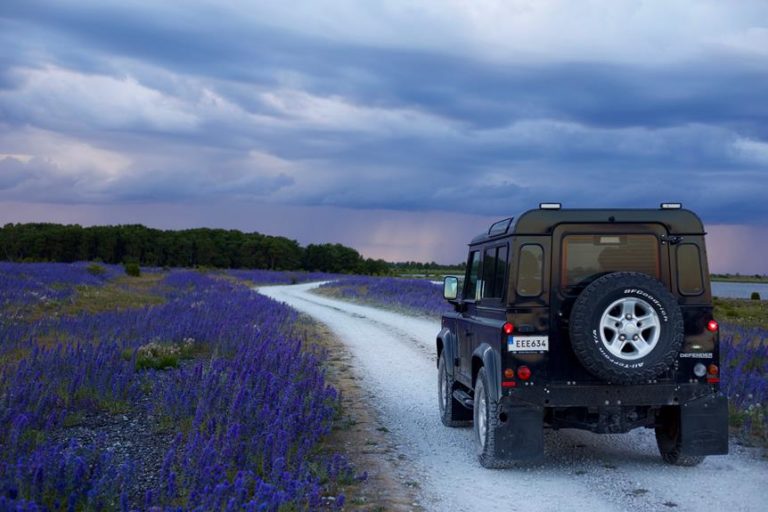Efficiently Budget Your Nomadic Lifestyle: Expert Tips
Step into the world of financial freedom and unlock the secrets to efficiently budgeting your nomadic lifestyle. With expert tips at your fingertips, you'll discover how to track expenses, set realistic budgets, and minimize accommodation and transportation costs. Prioritize essential expenses, find affordable food options, and plan for emergencies to ensure a worry-free journey. Let the symbol of financial success guide you as you embark on this tech-savvy adventure towards a life of limitless possibilities.
Key Takeaways
- Minimize transportation expenses by using affordable modes of travel like public transportation or carpooling.
- Budget for entertainment activities to enjoy new experiences without overspending.
- Utilize technology and budgeting apps to track expenses efficiently.
- Prioritize essential expenses and cut non-essential expenses to make the most of your budget.
Track Expenses
To effectively manage your nomadic lifestyle, you need to keep track of your expenses. Being on the move doesn't mean you can neglect your finances. In fact, it's even more crucial to stay organized and in control. One way to do this is by minimizing transportation expenses. Look for affordable modes of travel, such as public transportation or carpooling. Additionally, be mindful of your entertainment activities. Budgeting for these can help you enjoy new experiences without breaking the bank. Make use of technology to track your expenses efficiently. There are plenty of budgeting apps available that can categorize your spending and provide you with valuable insights. With a little discipline and the right tools, you can easily manage your expenses while living a nomadic lifestyle.
Set a Realistic Budget
Now that you have tracked your expenses, it's time to set a realistic budget for your nomadic lifestyle. Effective money management is crucial for ensuring a smooth and enjoyable journey. To help you with this, here are some realistic budgeting strategies to consider:
| Category | Monthly Budget | Tips and Tricks |
|---|---|---|
| Accommodation | $800 | Opt for affordable options like house-sitting or hostels. |
| Transportation | $300 | Utilize public transportation and compare flight prices. |
| Food | $400 | Cook your meals instead of dining out frequently. |
| Entertainment | $200 | Look for free or low-cost activities and events. |
| Miscellaneous Expenses | $300 | Set aside money for unexpected costs and emergencies. |
Minimize Accommodation Costs
Looking to minimize your accommodation costs while living a nomadic lifestyle? Consider the options of staying in hostels instead of hotels, where you can meet fellow travelers and save money. Another budget-friendly option is Couchsurfing, allowing you to stay with locals for free and experience a more authentic cultural exchange. And for the adventurous souls, camping on a budget can be a great way to save on accommodation expenses while immersing yourself in nature.
Hostel Vs. Hotel
When choosing your accommodation, prioritize budget-friendly options by considering the benefits of staying in a hostel versus a hotel. Hostels are a popular choice among budget travelers, offering affordable rates and a social atmosphere where you can meet fellow travelers. They often provide dormitory-style rooms with shared facilities, making them a great option for solo adventurers or those looking to save money. On the other hand, hotels offer more privacy and comfort, with options ranging from luxury to budget. If you prefer a private room, ensuite bathroom, and additional amenities, a hotel might be the better choice for you. Alternatively, platforms like Airbnb offer a middle ground, providing affordable private accommodations in local neighborhoods. Ultimately, the decision between a hostel, hotel, or Airbnb depends on your budget, preferences, and the type of experience you want to have during your nomadic lifestyle.
Couchsurfing Benefits
Maximize your savings on accommodation costs by taking advantage of the benefits of Couchsurfing. Not only will you save money, but you'll also have the opportunity to meet locals and immerse yourself in the culture of your destination. Before embarking on your Couchsurfing adventure, it's important to prioritize safety. Remember to read reviews and references from previous surfers to ensure a positive experience. Additionally, communicate openly with your host about your expectations and boundaries. Couchsurfing is built on a foundation of trust and respect, so it's essential to practice good etiquette. Be considerate of your host's space and time, and always show gratitude for their hospitality. By embracing the Couchsurfing community, you'll not only save money on accommodation but also create lasting connections and unforgettable experiences.
Camping on a Budget
To further reduce accommodation costs and continue immersing yourself in the local environment, consider camping on a budget during your nomadic lifestyle. Camping allows you to experience nature firsthand and save money on expensive hotels or rentals. Here are some tips to help you camp on a budget:
- Invest in cheap camping equipment: Look for affordable gear that meets your basic needs. Opt for budget-friendly tents, sleeping bags, and cooking utensils.
- Take advantage of camping in national parks: Many national parks offer campsites at a fraction of the cost of traditional accommodations. Research the parks in your area and make reservations in advance to secure a spot.
- Embrace the minimalist lifestyle: Pack only the essentials and avoid unnecessary luxury items. This will not only save you money but also make your camping experience more enjoyable.
Save on Transportation
- Cut your transportation costs by using public transportation whenever possible. Not only is public transportation a more affordable option, but it also has numerous benefits. By utilizing buses, trains, or trams, you can save money on fuel, parking fees, and vehicle maintenance. Plus, public transportation often offers discounted fares for students, seniors, and frequent travelers. Another cost-saving option is carpooling, where you can share the expenses of commuting with others. Carpooling not only reduces your transportation costs but also helps to alleviate traffic congestion and lowers carbon emissions. Transitioning into the next section about prioritizing essential expenses, it's important to consider transportation as a vital part of your budget and find ways to make it more economical.
Prioritize Essential Expenses
When prioritizing essential expenses, continue to consider transportation as a vital part of your budget and find ways to make it more economical. Here are three tips to help you cut non-essential expenses and allocate funds for savings:
- Embrace public transportation: Utilize buses, trains, and trams in the areas you visit. Not only will it save you money, but it's also an excellent way to immerse yourself in the local culture.
- Explore ridesharing options: Apps like Uber and Lyft offer convenient and cost-effective transportation alternatives. You can also consider carpooling with fellow nomads to split the expenses.
- Opt for eco-friendly transportation: Consider investing in a bicycle or electric scooter. Not only will it save you money on fuel, but it's also a fun and sustainable way to explore your surroundings.
Find Affordable Food Options
To save money on food while living a nomadic lifestyle, prioritize finding affordable options in the areas you visit. One way to do this is by shopping at budget-friendly grocery stores, where you can find quality ingredients at lower prices. Cooking on a budget doesn't mean sacrificing taste or nutrition. With a little creativity and resourcefulness, you can whip up delicious meals without breaking the bank.
Here's a table to help you plan your meals and make the most of your budget:
| Meal | Ingredients |
|---|---|
| Breakfast | Oatmeal, bananas, eggs |
| Lunch | Rice, beans, vegetables |
| Dinner | Pasta, canned tomatoes, tuna |
| Snacks | Apples, carrots, nuts |
| Drinks | Water, tea, homemade smoothies |
Plan for Emergencies
Now that you've got your food budget under control, it's time to talk about planning for emergencies. We all know that unexpected expenses can pop up at any time, whether it's a medical emergency or a broken down vehicle. That's why it's crucial to have a solid emergency savings fund to fall back on.
Emergency Savings Importance
Having emergency savings is crucial for efficiently budgeting your nomadic lifestyle. It provides a safety net that can protect you from unexpected expenses and help maintain your financial stability. Here are three key reasons why having an emergency fund is so important:
- Peace of mind: Knowing that you have a financial cushion in case of emergencies can greatly reduce stress and anxiety, allowing you to enjoy your nomadic lifestyle with peace of mind.
- Flexibility: Having emergency savings gives you the flexibility to handle unforeseen circumstances without derailing your budget. Whether it's a medical emergency or a sudden vehicle repair, you can tackle these expenses without compromising your travel plans.
- Opportunity for growth: By having an emergency fund, you create an opportunity to invest in yourself and your future. It allows you to take calculated risks and pursue new opportunities without the fear of financial setbacks.
Unexpected Expenses Preparation
Be prepared for unexpected expenses by creating a comprehensive plan for emergencies. As a nomad, it's crucial to have an emergency fund in place to cover any unforeseen costs that may arise during your travels. One of the main reasons for having an emergency fund is to protect yourself against unexpected medical costs. While it's impossible to predict when illness or injury may strike, having a financial safety net can provide peace of mind and ensure that you can afford the necessary medical care if needed. By setting aside a portion of your income each month specifically for emergencies, you can build up a fund that will help you handle any unexpected expenses that may come your way. Now, let's move on to the next section and explore insurance coverage considerations for your nomadic lifestyle.
Insurance Coverage Considerations
To effectively plan for emergencies, it is essential for you to consider insurance coverage options for your nomadic lifestyle. Insurance provides financial protection in case of unexpected events, ensuring that you have the necessary support when you need it the most. Here are some insurance coverage types to consider:
- Health insurance: This will cover your medical expenses, including doctor visits, hospital stays, and prescription medications, regardless of where you are.
- Travel insurance: This type of insurance can protect you from travel-related risks such as trip cancellations, lost luggage, and medical emergencies while you're on the move.
- Property insurance: If you own valuable items or equipment, property insurance can safeguard them against theft, damage, or loss.
Factors affecting insurance costs include your age, health condition, travel destinations, and the level of coverage you choose. Make sure to research different insurance providers and policies to find the most suitable options for your nomadic lifestyle.
Frequently Asked Questions
How Can I Budget for Social Activities and Entertainment While Living a Nomadic Lifestyle?
You can efficiently budget for social activities and entertainment while living a nomadic lifestyle by prioritizing experiences, seeking out free or low-cost events, and using technology to find deals and discounts.
Are There Any Strategies for Finding Affordable Healthcare Options While Traveling?
When traveling, finding affordable insurance options and accessing local healthcare can be a challenge. Look for international health insurance plans that cater to nomads and research healthcare systems in each location.
What Are Some Tips for Managing and Reducing the Costs of International Phone and Internet Bills?
To manage and reduce international phone and internet bills, focus on reducing roaming costs and managing data usage. Use WiFi whenever possible, download maps and content offline, and consider purchasing local SIM cards for cheaper rates.
How Can I Save Money on Visa and Immigration Fees While Moving Between Countries Frequently?
To save money on visa and immigration fees while moving frequently, explore cost-effective ways to stay in each country. Use online platforms to find cheap accommodations and consider alternative transportation options to minimize costs.
Are There Any Resources or Apps That Can Help Me Track and Manage My Finances More Efficiently While on the Road?
Looking to efficiently manage your finances while on the road? Check out the best financial tracking apps for digital nomads. They offer effective strategies for managing expenses, helping you stay on top of your budget.





